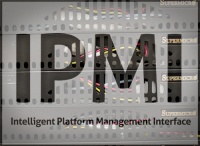Recently, an upgrade from FreeBSD 12.1 to FreeBSD 12.2 led me down a path to examine the process of updating the boot code on the boot disk. After reading several forum and email list posts about this issue, I decided to create a VirtualBox VM to test solutions before upgrading the zpool and disk boot code on my ThinkPad.
Continue reading “FreeBSD 12.2, UEFI, Zpool Upgrade and Updating Disk Boot Code”Category: FreeBSD
Changing a Let’s Encrypt Certificate’s Domains
Did you ever configure a piece of software or service and spend a great deal of time doing so, without documenting it, only have to modify it in the future. Let’s Encrypt is one of those pieces of software I had configured in the past and recently had to modify then spend an inordinate amount of time trying to figure out my initial configuration. This post is an attempt to piece together and document what is needed to update the domains in my Let’s Encrypt Certificate
Continue reading “Changing a Let’s Encrypt Certificate’s Domains”Avahi in FreeBSD
Introduction:
After installing CUPS, I noticed avahi-app was installed as a dependency. Also, while digging around a bit in /usr/local/etc/rc.d, I notice two files of interest: avahi-daemon and avahi-dnsconfd. As a result, I wanted to configure the Avahi on my system provide local hostname resolution using the hostname.local naming scheme as well as the discovery of avahi aware services.
Continue reading “Avahi in FreeBSD”MySQL 5.7 – Resetting root’s password
After several upgrades of MySQL on my FreeBSD 12.1 Server and, in particular, upgrading from MySQL 5.6 to MySQL 5.7 caused the MySQL 5.7 Server not to start. Reviewing the MySQL .err log file, I decided to remove all the data under /var/db/mysql! Of course, backups and snapshots were made. After removing the data structure under /var/db/mysql, one must re-establish MySQL’s root password thus prompting this post.
Although not a great source of inspiration or knowledge presented in this post, but it is more for my recollection in the future!
Steps for resetting your MySQL instance in FreeBSD 12.1:
root@xxx:/ # service mysql-server stop root@xxx:/ # cd /var/db/mysql/ root@xxx:/var/db/mysql # rm -Rf * root@xxx:/var/db/mysql # sysrc mysql_args="--skip-grant-tables" root@xxx:/var/db/mysql # service mysql-server start root@xxx:/var/db/mysql # mysql -u root root@localhost [(none)]> FLUSH PRIVILEGES; root@localhost [(none)]> ALTER USER 'root'@'localhost' IDENTIFIED BY 'new password'; root@localhost [(none)]> exit root@xxx:/var/db/mysql # service mysql-server stop root@xxx:/var/db/mysql # sysrc -x mysql_args="--skip-grant-tables" root@xxx:/var/db/mysql # service mysql-server start
Checking your password:
root@xxx:/var/db/mysql # mysql -u root -p Enter password: 'new password' root@localhost [(none)]> exit
Summary:
It’s not very often one should feel the need to wax your MySQL Instance, but if you do, ensure backup and snapshots of the data are taken first.
FreeBSD and RedShift – Blue Light Suppression
FreeBSD and Redshift:
Recently, I started using FreeBSD as my daily driver on my ThinkPad T480. Rather than bore you with installing and initially configuring FreeBSD, I rather focus on the small things that will make your experience much better using FreeBSD on the desktop. Continue reading “FreeBSD and RedShift – Blue Light Suppression”
FreeNAS Mini and ipmitool
FreeNAS Mini and ipmitool:
Recently, a Java update prevented the use of the Java KVM applet to enable a console session with the FreeNAS Mini IPMI backplane. Rather than jump through numerous hoops to change Java’s configuration files, ipmitool utility came to the rescue. Continue reading “FreeNAS Mini and ipmitool”
Converting Port Management from Ports to Pkg
Convert Ports Management from Ports to Packages on FreeBSD
The FreeBSD Ports system is very effective but costly in time to upgrade applications especially if managing a large number of servers. With the advent of FreeBSD’s new package system – pkg and Poudriere, package management can be customized similarly to ports with the ease of upgrading via pkg. This post demonstrates the steps require to convert a machine from utilizing ports to pkg. If Poudriere is not desired, this guide is still applicable minus the Poudriere setups.
Continue reading “Converting Port Management from Ports to Pkg”
FreeBSD and Apache ModSecurity
Apache ModSecurity:
ModSecurity performs real-time web application monitoring, logging and access control. It can also reduce Apache’s attack surface by narrowing down HTTP features the server is willing to accept. Continue reading “FreeBSD and Apache ModSecurity”
Rsync from a FreeBSD Server to a FreeBSD Shell Account
Foreword:
Recently, a need to utilize rsync to synchronize various FreeBSD configuration files to a FreeBSD shell account at our BSD-based hosting services company necessitated this post to document the basic setup and configuration. Continue reading “Rsync from a FreeBSD Server to a FreeBSD Shell Account”
Drush: Command Line Utility for Drupal on FreeBSD
About Drush:
Drush is a command line shell and Unix scripting interface for Drupal installations. It can update Drupal’s core files, update modules and execute sql queries just to name a few. It is a must have utility to manage one or many Drupal installations. This guide will only touch on a few of the many commands.
Continue reading “Drush: Command Line Utility for Drupal on FreeBSD”









